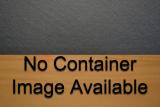Test Directory
Intrinsic Factor Antibody
Containers - Adult

Sarstedt Monovette Serum Gel Tube (Brown Cap)
|
Volume Range
4.9mls
Additive per Container
Clotting activator/gel |
Containers - Child

Sarstedt Monovette Serum Gel Tube (Brown Cap)
|
Volume Range
4.9ml
Additive per Container
Clotting activator/gel |
Reference ranges
Intrinsic Factor Antibody
Positive ≥6 U/ml
Negative <6 U/ml
Laboratory Site
Old Dalkeith Road
Edinburgh
EH16 4SA
How to request
Trak, ICE, Clinical Immunology request form.
Availability
Normal working hours 9am-5pm Mon-Fri.
Anticipated turnaround
What happens if the result is positive or abnormal
General additional information
Diagnosis of pernicious anaemia (positive in ~70% of patients with pernicious anaemia).
Pernicious anaemia is a chronic disease at the end stage of type A (autoimmune) chronic atrophic gastritis. Type A is autoimmune in nature and associated with pernicious anaemia. Type B (non-autoimmune) is associated with H.pylori infection. During the progression of type A chronic atrophic gastritis, gastric parietal cells which produce intrinsic factor and HCl, and zymogenic cells which produce pepsinogen, are destroyed and production of Intrinsic Factor (IF) and HCl is eliminated. Intrinsic Factor is essential for the absorption of vitamin B12 from the intestine and its absence leads to vitamin B12 deficiency and megaloblastic anaemia. Diagnosis of pernicious anaemia is important for the treatment of the anaemia itself and prevention of irreversible neurological damage. Circulating antibodies to Intrinsic Factor are highly specific and can be detected in >50% of cases with pernicious anaemia. These antibodies are of 2 types: Type 1, blocking antibodies which prevent the binding of vitamin B12 to the IF molecule and Type 2 antibodies which may interfere with the binding of the IF-vitamin B12 complex to the ileal receptor.